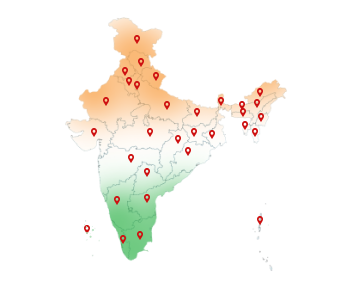16-Oct-2024
Protect your innovations with Digital Signature Certificate for IPR
Intellectual Property Rights (IPR) refer to the legal rights granted to inventors and creators to protect their inventions, designs, brands, and artistic works. These rights allow the creators to control how their intellectual property is used and ensure they receive credit or compensation for their work. The main types of IPR include patents, trademarks, copyrights, and designs.
In the virtual world, protecting your creative work is more important than ever, and that's where a Digital Signature Certificate online makes a difference. It acts like your personal digital stamp, confirming your identity and ensuring that your intellectual property is securely submitted and recognized.
To ensure your application is secure and compliant, buy Digital Signature Certificate for IPR. This will simplify the online submission process and make managing your paperwork effortless.
Advantages of DSC
Digital Signature Certificate for IPR is important because:
1. It proves who is filing the IPR application, ensuring they are who they say they are.
2. Keep your online documents safe from tampering and fraud.
3. Gives digital signatures the same legal power as handwritten ones.
4. It makes filing patents, trademarks, and designs faster and easier.
5. Helps you follow the rules for submitting documents electronically.
Buy your Digital Signature Certificate for IPR from Capricorn CA to unlock all these benefits. Ensure secure submissions, smooth compliance, and efficient management of your intellectual property rights.
Can I apply trademark without DSC?
No, You cannot apply for a trademark without DSC. Digital Signature Certificate online is essential for electronically filing trademark applications in India. Under the Information Technology (IT) Act of 2000, digital signatures are necessary to ensure the security and authenticity of electronic documents.
The Controller General of Patents, Designs, and Trademarks (CGPDT) mandates a Class 3 DSC for trademark filings. Get your Class 3 Digital Signature Certificate for IPR to protect your filings and meet the necessary requirements.
What is GI?
GI stands for Geographical Indication. It's a label that shows a product comes from a specific place and has special qualities because of where it's made.
Key aspects of Geographical Indication:
Indication of Origin: It tells you that a product is made in a particular place.
Special Area: The product must come from a specific region, like a city or village, to get the GI label.
Identification of Goods: Used for things like food, natural products, or even handmade items.
Manufactured Goods: For manufactured goods, they must be produced, processed, or prepared within the specified territory.
Special Quality: The product must have a unique quality, reputation, or special feature because of its geographical origin.
Advantages of registering GIs
Registering a Geographical Indication (GI) offers several benefits:
It gives legal protection to GIs in India.
Prevents unauthorized use of the registered GI by others.
Helps protect Indian GIs, potentially boosting exports.
Supports the economic growth of producers in the specific region where the GI originates.
Validity of GI registration
The registration of a Geographical Indication is valid for 10 years and can be renewed repeatedly for additional 10-year periods.
Difference between Geographical Indication and Trademark
A trademark is a symbol or sign used to identify and set apart the goods or services of one business from those of others.
A Geographical Indication (GI), on the other hand, is used to identify products that have unique qualities because they come from a specific geographical area.
What is the registration process for GI?
Follow this step-by-step guide to registering a Geographical Indication (GI):
1. File Your Application: Prepare an application with details about the GI, including the geographical area, product characteristics, and evidence of the product's reputation.
2. Submit: Send the application to the Geographical Indications Registry.
3. Review: The registry checks if your application meets the rules and is correctly tied to its location. If there are any issues, fix them within one month of getting the notice.
4. Publication: If the application is approved, it's published in the GI Journal. This lets others see it and raise any objections.
5. Handle Objections: Others can oppose your GI within three months. If there are any objections, you will need to address them to move forward.
6. Registration: If there are no objections or you've resolved them, your GI will be officially registered, and you'll receive a certificate for legal protection.
7. Renewal: The GI registration lasts for 10 years and can be renewed for another 10 years each time.
8. Appeal: If you are not satisfied with the decision, you can appeal to the Intellectual Property Appellate Board (IPAB) within three months.
Conclusion
Digital Signature Certificate for IPR gives digital signatures the same legal power as handwritten ones. This makes filing patents, trademarks, and designs quicker and easier. It also helps you follow the rules for submitting documents online. Get your DSC now and simplify your IPR filings!


